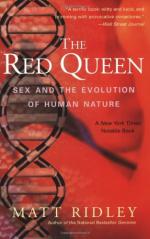
|
| Name: _________________________ | Period: ___________________ |
This test consists of 15 multiple choice questions and 5 short answer questions.
Multiple Choice Questions
1. What do organisms that reproduce end up with for offspring?
(a) Smart offspring.
(b) Completely different offspring.
(c) Clones.
(d) Non functional offspring.
2. Organisms that reproduce sexually will pass immunity or defenses down to whom?
(a) Their spouses.
(b) Their descendants.
(c) Their friends.
(d) No one.
3. What does being fast allow for a gazelle to do?
(a) The fast gazelle survives and reproduces, thus spreading its genes.
(b) It is able to always kill its prey.
(c) The gazelle gets caught.
(d) The gazelle is never caught and it throws off the balance of the environment.
4. How does Chapter 2 begin?
(a) With diagrams.
(b) An explanation of sexual reproduction.
(c) Information about the author.
(d) With a fictional account of a Martian visitor.
5. Are individuals involved in evolution aware of the choices they are making?
(a) Ten per cent of the time.
(b) Fifty per cent of the time.
(c) Always.
(d) Never.
6. Instead of scientists concentrating on why humans are the way they are, they should concentrate on _________.
(a) How they got to be the way they are.
(b) Where humans live.
(c) Why humans are the way they are.
(d) A way to study humans without them knowing.
7. What does the story in Chapter 5 prove for the author?
(a) Producing offspring is the goal of all mammals.
(b) Ideal mating conditions are rare.
(c) How male support continues the species.
(d) An example of sexual, rather than natural selection.
8. What is the chief competitor to the tangled bank theory and lottery theory?
(a) The King's Theory.
(b) The Red Queen Theory.
(c) The tangled bank and lottery theory have no competition.
(d) The Blue Book Theory.
9. To understand human nature, what must we understand?
(a) The origin of attraction between humans.
(b) The origin of human nature.
(c) Differences in humans.
(d) The origin of emotions.
10. Who has solutions concerning genetics?
(a) Scientists.
(b) Molecular biologists and geneticists.
(c) Geneticists.
(d) Doctors and scientists.
11. Sexual reproduction benefits _____________.
(a) Only humans, not other organisms.
(b) No one.
(c) One member of the same organism versus another member of that same organisim.
(d) Everyone.
12. Although it becomes clear that sex is necessary to avoid parasites, what question remains?
(a) Why people enjoy sex.
(b) Why sex works the way it does.
(c) Whether or not sex is the best way to reproduce.
(d) How sex works.
13. What are transposons?
(a) Viruses.
(b) Out law genes.
(c) Diseases.
(d) Weaker genes.
14. What is the "good genes" theory?
(a) More attractive people make smart people.
(b) Smart people are attracted to other smart people.
(c) More attractive males will produce beautiful children.
(d) Beautiful children are evil.
15. What is sexual selection?
(a) Selection based on the strength of a mate.
(b) Irrational mating between humans.
(c) Selection based on the appeal of a potential mate.
(d) Random mating between humans.
Short Answer Questions
1. Why is the Vicar of Bray theory flawed?
2. What can a psychiatrist expect to find in all people?
3. What have mound building skills become?
4. What is the bdelloid rotifer?
5. Of course, both males and females have a (an) ________ to deceive the other sex to promote their own attractiveness.
|
This section contains 560 words (approx. 2 pages at 300 words per page) |

|




